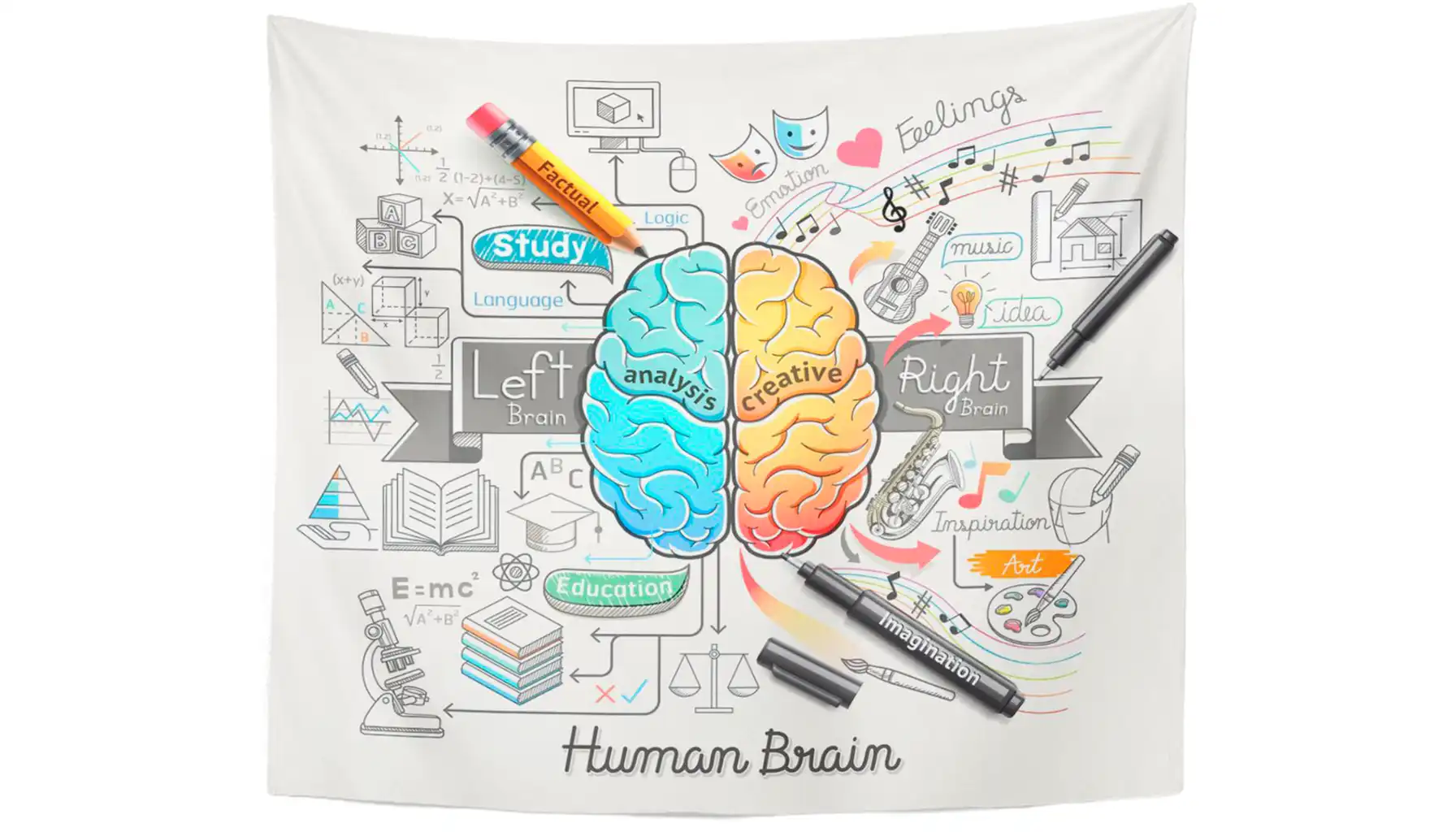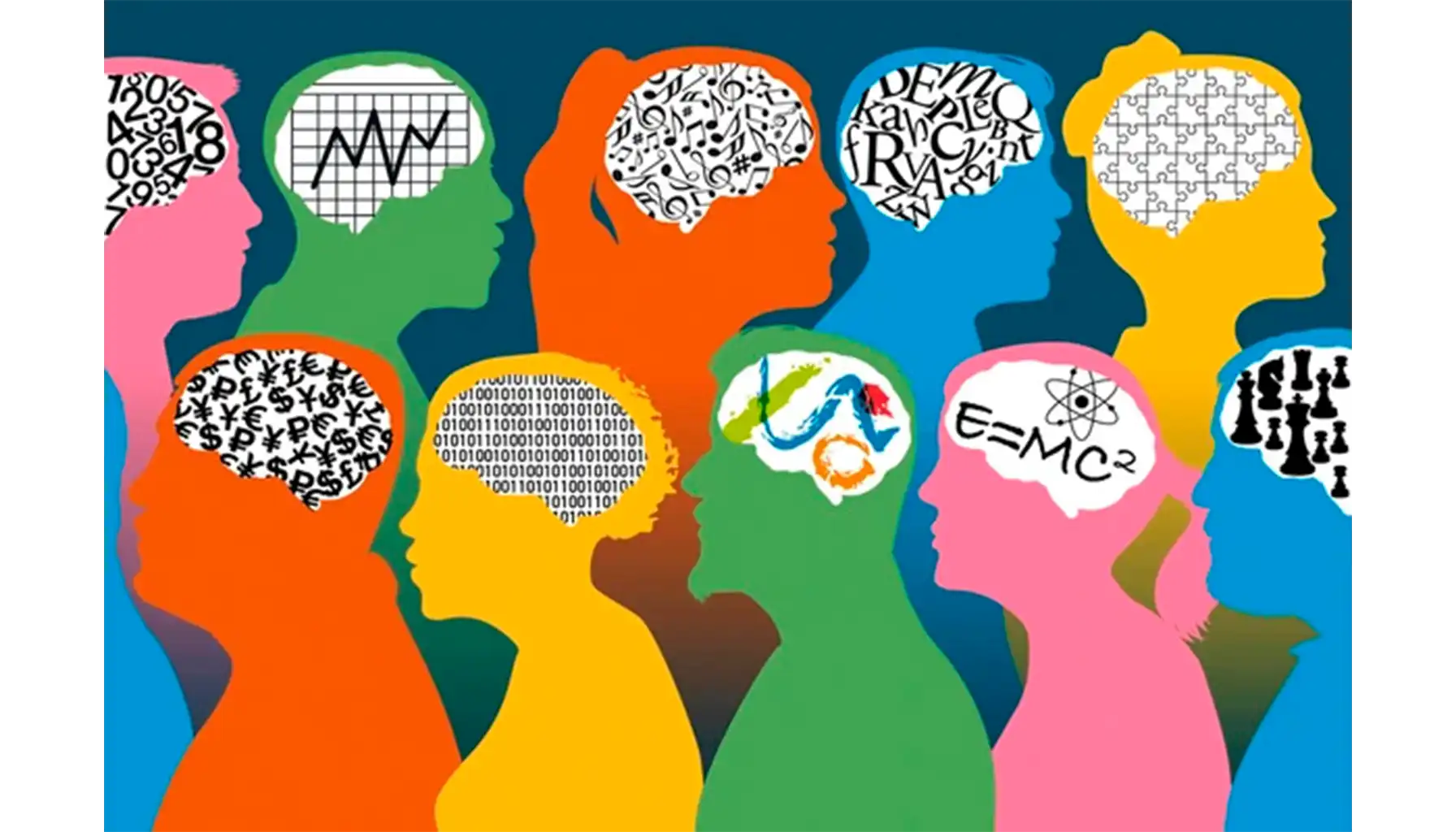Inner Powers: The Hidden Gifts of Intrapersonal Intelligence

Contents:
- The Theory of Multiple Intelligences
- What Is Intrapersonal Intelligence?
- Interpersonal vs Intrapersonal Intelligence
- How Does Intrapersonal Intelligence Affect Your Success and Well-Being?
- Intrapersonal Intelligence Jobs: Careers That Thrive
- Take the Quiz: How Intrapersonally Intelligent Are You?
- How to Make Your Intelligence Thrive?
- Mind Elevate Related Posts:
Know thyself. Philosophy has long urged us to look inside, explore the inner world, and understand what is hidden deep down. Barely do people realize that our cognitive skills may rely on self-reflection rather than external information only.
Intrapersonal intelligence, the unknown but still vital aspect of our cognition, should always be taken into consideration by educators, parents, and, obviously, informed individuals for true personal and academic growth. But what does the intrapersonal intelligence meaning hide? How to acknowledge it, and is knowing yourself the ultimate brain workout of all?

The Theory of Multiple Intelligences
The general perception of intelligence, unfortunately to those developing its scientific term, is typically misinterpreted: most of us may picture someone solving difficult equations, analyzing complex problems, speaking numerous languages, or excelling at reasoning. However, the truth is different. To prove us wrong, psychologist Howard Gardner challenged that narrow view with his groundbreaking Theory of Multiple Intelligences.
According to Gardner's developments, there exist at least eight core forms of intelligence, each of which is expressed in different ways and daily processes:
Verbal-linguistic I (the ability to use words effectively)
Logical-mathematical I (skill in reasoning, problem-solving, and working with numbers)
Spatial I (the capacity to visualize and manipulate objects and spaces in the mind)
Musical I (sensitivity to rhythm, tone, melody, and sound patterns)
Bodily-kinesthetic I (the use of the body for expression or problem-solving, e.g., sports or dance)
Interpersonal I (the ability to understand and interact with others)
Intrapersonal I (self-awareness and the ability to reflect)
Naturalistic I (recognizing and understanding of features of the natural world)
In particular, as per Gardner's theory, everyone possesses all of these intelligences, yet to some degree only. Each human may boast a unique combination of Is, but every constituent may evolve over time (also depending on preferences, context, and opportunity). Now, let us finally focus on intrapersonal I.

What Is Intrapersonal Intelligence?
Understanding our own emotions is vital, and this comes down to a particular term, which is now extremely popular among psychologists and other specialists dealing with cognitive skills and mental health – intrapersonal intelligence. But what does intrapersonal intelligence mean? In fact, II is a mental capacity to evaluate and manage inner experiences, i.e., our thoughts, emotions, and responses. This takes an active part in the formation of the mental state and reaction regulation.
How do we define intrapersonal intelligence? Indeed, it is all about one's values, perspectives, backgrounds, behavioral patterns, upbringing, and overall experience that is reflected mentally. However, the fact that it may be both controlled and lost makes this aspect a bit more sophisticated. When II is strong enough, one may handle the stress and grow from challenges. When it comes to people with weak II, the risk of emotional overwhelm or mental difficulties increases for good.
The examples of intrapersonal intelligence (i.e., the reflection of how a person may articulate and process emotions in real life) might include:
Writing regularly to reflect on thoughts, feelings, and life experiences.
Recognizing emotional triggers.
Setting goals that align with internal motivations rather than external pressure.
Making informed decisions.
Knowing when to take a break and understanding the limits.
Relying on self-reflection to grow.
…and more
Briefly speaking, the better you understand yourself, the better equipped you are to live this life and prosper.
Intrapersonal Intelligence Characteristics | |
Self-awareness | A clear understanding of one’s emotions, thoughts, and motivations |
Emotional regulation | The ability to manage and respond to feelings in a healthy, intentional way |
Reflectiveness | A tendency to think deeply about experiences and personal growth |
Independence | Comfortable working alone and autonomy |
Goal-oriented mindset | A strong sense of personal direction and motivation |
Honesty with self | Willingness to confront personal flaws and strengths |
Inner resilience | The ability to bounce back from challenges using self-reflection and adaptation |
Value-driven choices | Decision-making guided by personal beliefs |
Interpersonal vs Intrapersonal Intelligence
The words can get tricky (especially when they are of Latin origin). The words "interpersonal" and "intrapersonal" are frequently confused, for they bear the same root but different prefixes, i.e., "inter" meaning "between/among" and "intra" meaning "within". While intrapersonal I refers to digging into the soul, reflections, and understanding who and what you are, interpersonal intelligence focuses on the social side of life.
According to M. Dufner ("Self-enhancement and psychological adjustment: A meta-analytic review"), intrapersonal I is the domain of individual, internal psychological processes, while interpersonal I controls social interactions and external relationships only. By the way, both these aspects make humans so unique: they (we) are no longer animals but conscious creations that may reflect, analyze, and get better.
How Does Intrapersonal Intelligence Affect Your Success and Well-Being?
Being an intelligent person has always been important: all the paths are available, no matter where you are and what type of background you may have. But it cannot be confined to the knowledge you have, but the ability to cope with it in particular. When one is aware of their thoughts, emotions, and motivations, it is much easier to make decisions and achieve long-term goals. Your self-awareness is the key!
To be more precise, people with a strong intrapersonal profile tend to excel academically and professionally, for they are more self-motivated, self-correct, meticulous, stubborn, and flexible when needed. Besides, should we be talking about well-being, the benefits are obvious. Self-awareness does facilitate emotional resilience and support mental health.
Reactive emotions do not turn into distractions, for they are absent: those with high intrapersonal I know how to pause, reflect, and respond thoughtfully.
Also read: Bionic Reading.

Intrapersonal Intelligence Jobs: Careers That Thrive
In general, people who may feel themselves are considered too sensitive, yet this is both true and wrong. People with strong II are often involved in work that requires reflection, emotional depth, independent thinking, and personal discipline. Here are four notable jobs where intrapersonal intelligence is essential:
Writer or Author: Requires introspection, emotional insight, and the ability to translate internal experiences into words.
Counselor: Self-awareness (as well as empathy that can be born out of your inner world) is crucial when helping others understand and follow their emotions and behaviors.
Life Coach or Mentor: Success in this field comes from guiding others. Reflecting is vital here.
Spiritual Leader or Meditation Teacher: These roles demand emotional balance, deep self-reflection, and the ability to guide others inward.
Take the Quiz: How Intrapersonally Intelligent Are You?
Instructions: Choose the answer that best describes you.
A = Often B = Sometimes C = Rarely
I reflect on my feelings and try to understand their source.
I am aware of my superpowers and room for grey areas to improve.
I enjoy setting goals and tracking my progress.
I notice how my mood affects my thoughts and actions.
I wish to spend time alone to process information and recharge.
I make decisions according to what I feel right now.
I can calm myself down when I am upset.
I regularly meditate or think about my experience.
I feel concerned about my own beliefs and their explanations.
I know what motivates me, even when things get hard.
Scoring:
Mostly A's – High Intrapersonal Intelligence
Your self-awareness, emotional insight, and thoughtful decision-making guide much of your life.
Mostly B's – Moderate Intrapersonal Intelligence
You show signs of strong inner awareness, but there is always room for improvement.
Mostly C's – Emerging Intrapersonal Intelligence
Never give up on development. Yes, you may not focus much on your internal world yet, but practice and self-reflection should be a priority anyway.

How to Make Your Intelligence Thrive?
Your cognitive skills and their degrees may differ, but their importance and spheres of application cannot be diminished. Intrapersonal intelligence is more of an innate feature that can be nourished, but how to make it possible? Where should one start?
Reflect daily: It is a well-known fact that thinking helps one understand patterns in their thoughts and emotions.
Set new goals: Choose personal goals that align with your values.
Learn from your experiences: Reflect after setbacks or wins. What can you learn about yourself?
Use solitude wisely: Spending time alone can be beneficial and fruitful, though it only depends on a person how to use this time wisely.
Try brain-training apps: Digital tools may keep your brain more focused, responsive, and mentally flexible. Apps like Mind Elevate may offer quick daily workouts to boost cognitive performance and concentrate on skills like memory retention, attention, logic, math, focus, and music as well. Brief games – great changes. Anything should have a fine start.
The definition of intrapersonal intelligence has always been about something elevated, hidden deep inside. Personal growth and emotional balance all lead to a purposeful living, so why not live through such an experience and make your inner world more stable and thriving?





